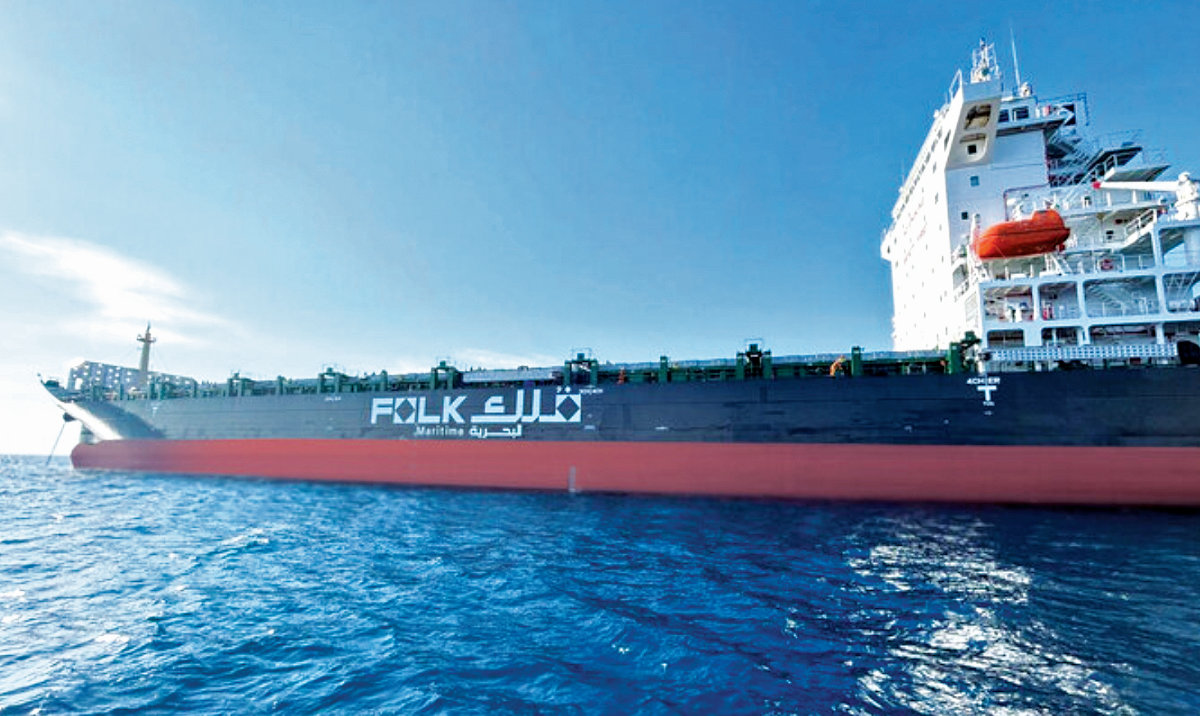RIYADH: Saudi Arabia’s non-oil exports surged by 10.5 percent year-on-year in the second quarter of 2024, led by outgoing shipments to the UAE and China, official data showed.
According to the General Authority for Statistics, of the SR51.16 billion ($13.63 billion) registered by the sector in the three months to the end of June, non-oil goods worth SR15.07 billion were sent to the Kingdom’s Gulf neighbor, with SR7.08 billion going to the Asian powerhouse.
The UAE imported machinery and mechanical appliances worth SR5.83 billion, followed by shipments of transport equipment and chemical products valued at SR3.68 billion, and SR1.48 billion, respectively.
China also held the first position for the Kingdom’s imports, constituting 23.1 percent of the total incoming shipments valued at SR45.38 billion.
Saudi Arabia’s Vision 2030 economic diversification strategy has placed increasing non-oil exports at its heart, with the ambition of having the sector contribute to 50 percent of non-oil GDP by the end of the decade.
Other countries to import Saudi goods in the second quarter of 2024 included Bahrain with a value of SR5.79 billion and India with SR5.48 billion worth of merchandise.
Singapore imported SR3.13 in non-oil goods, while Turkiye and Belgium received SR2.93 billion and SR2.40 billion worth of products, respectively.
GASTAT noted that national non-oil exports excluding re-exports also witnessed a rise of 1.4 percent in the second quarter of this year, compared to the same period in 2023.
The authority revealed that chemical and non-allied products led the Kingdom’s non-oil exports during the second quarter, constituting 25.6 percent of the total outgoing shipments.
Plastic products from Saudi Arabia accounted for 24.3 percent of the total non-oil exports from the Kingdom in the second quarter.
King Fahad Industrial Sea Port in Jubail sent the majority of the non-oil exports from the Kingdom, with outgoing shipments worth SR11.20 billion.
Ras Tanura Sea Port sent exports worth SR9.96 billion, followed by King Abdulaziz Sea Port in Dammam at SR7.84 billion and Jeddah Islamic Sea Port at SR8.09 billion.
King Khalid International Airport in Riyadh handled exports valued at SR5.86 billion, while goods worth SR5.86 billion and SR3.25 billion went through the King Abdulaziz International Airport and King Fahad International Airport.
Saudi Arabia’s merchandise exports steady in Q2
According to the GASTAT report, Saudi Arabia’s overall merchandise exports witnessed a marginal decline of 0.2 percent in the first quarter of this year to SR294.51 billion, compared to the same period of the previous year.
The authority attributed this marginal decline to a decrease in oil exports which fell by 3.3 percent, due to Saudi Arabia’s decision to reduce crude output, aligned with an agreement made by OPEC+.
To maintain market stability, the Kingdom had reduced its oil output by 500,000 barrels per day in April 2023, and this cut has now been extended until December 2024.
In the second quarter of 2024, exports to China amounted to 16.2 percent or SR47.58 billion of total outgoing shipments, making the Asian giant the favorite destination for the Kingdom’s outbound goods.
China was followed by South Korea, with the East Asian nation importing products worth SR26.40 billion from the Kingdom.
Saudi Arabia sent goods worth SR25.95 to Japan, while products valued at SR23.45 billion and SR19.35 billion were sent to India and the UAE during the second quarter of this year.
The US received inbound shipments worth SR15.66 billion from Saudi Arabia during the second three months of 2024, followed by Bahrain and Poland at SR8.80 billion and SR5.65 billion, respectively.
Saudi imports up
According to GASTAT, Saudi Arabia’s imports rose by 3 percent in the second quarter to SR196.14 billion, compared to the same period in 2023, while the merchandise trade balance witnessed a dip of 6 percent during the same period.
The report further noted that the ratio of non-oil exports, including re-exports, to imports increased in the second quarter, reaching 37.6 percent compared to 35.1 percent in the same period of the previous year.
“This increase is attributed to the increase in imports, which rose by 3 percent compared to the significant increase in non-oil exports, which rose by 10.5 percent during this period,” said GASTAT.
According to the authority, the most imported products during the second quarter were machinery and electrical equipment, which constituted 25.7 percent of the total inbound shipments to the Kingdom – a rise of 27.4 percent compared to the same period in previous year.
In the second quarter, transportation equipment and parts constituted 12.4 percent of the total imports, representing a decrease of 14.9 percent compared to the year-ago period.
Over the three-month period, Saudi Arabia imported machinery and mechanical appliances worth SR20.45 billion from China, followed by base metal goods at SR4.98 billion and transport equipment at SR6.62 billion.
Saudi Arabia received inbound shipments worth SR16.52 billion in the second quarter, while imports from the UAE and India amounted to SR11.80 billion and 11.49 billion, respectively.
In the three months to the end of June, imports worth SR116.81 billion reached the Kingdom through the sea, while products worth SR55.76 billion and SR23.56 billion, reached via the air and the land.
According to the GASTAT report, King Abdulaziz Sea Port in Dammam was one of the most important ports through which goods crossed into the Kingdom, accounting for 28 percent of total incoming shipments in the second quarter valued at SR54.95 billion.
The other major ports of entry for imports were Jeddah Islamic Sea Port which handled imports worth SR38.86 billion, followed by Ras Tanura Sea Port and Deba Sea Port, which welcomed inbound shipments valued at SR5.17 billion and SR2.31 billion, respectively.
King Abdullah Sea Port and Baish Sea Port also handled incoming goods worth SR3.38 billion and SR1.82 billion, respectively.
Among the airports, King Khalid International Airport in Riyadh welcomed imports worth SR28.36 billion, while King Abdulaziz International Airport and King Fahad International Airport in Dammam received inbound cargoes valued at SR15.48 billion, and SR11.57 billion, respectively.
Saudi trade with China
With China being in the top position for Saudi imports and exports, there is a clear drive in the Kingdom to further develop and consolidate this important relationship.
Earlier this week, airfreight company Saudia Cargo announced a new “Landing in China in 24” campaign, designed to highlight its links to the Asian country.
According to a press release, the campaign is in close collaboration with the Made in Saudi initiative, championed by the Saudi Export Development Authority, which focuses on enhancing the global recognition and quality of Saudi products.
Marwan Niazi, vice president of commercial at Saudia Cargo, said: “Through this campaign, we aim to enhance our shipping capabilities and broaden our export scope to the Chinese markets by optimizing export operations and providing advanced logistic services that align with the growing global market demands and commercial connections.
“We have focused on facilitating the access of Saudi products to the Chinese markets and showcasing our logistical capabilities and operational efficiency.”
































